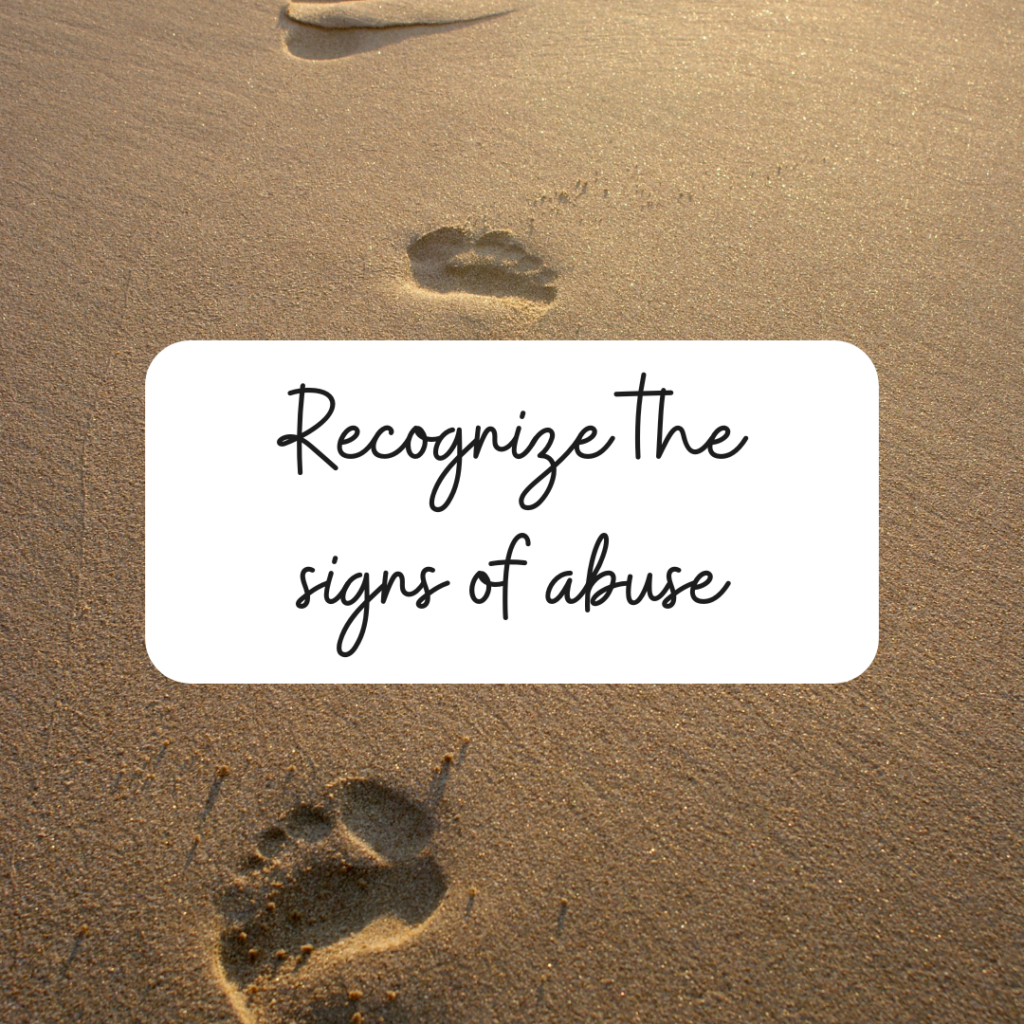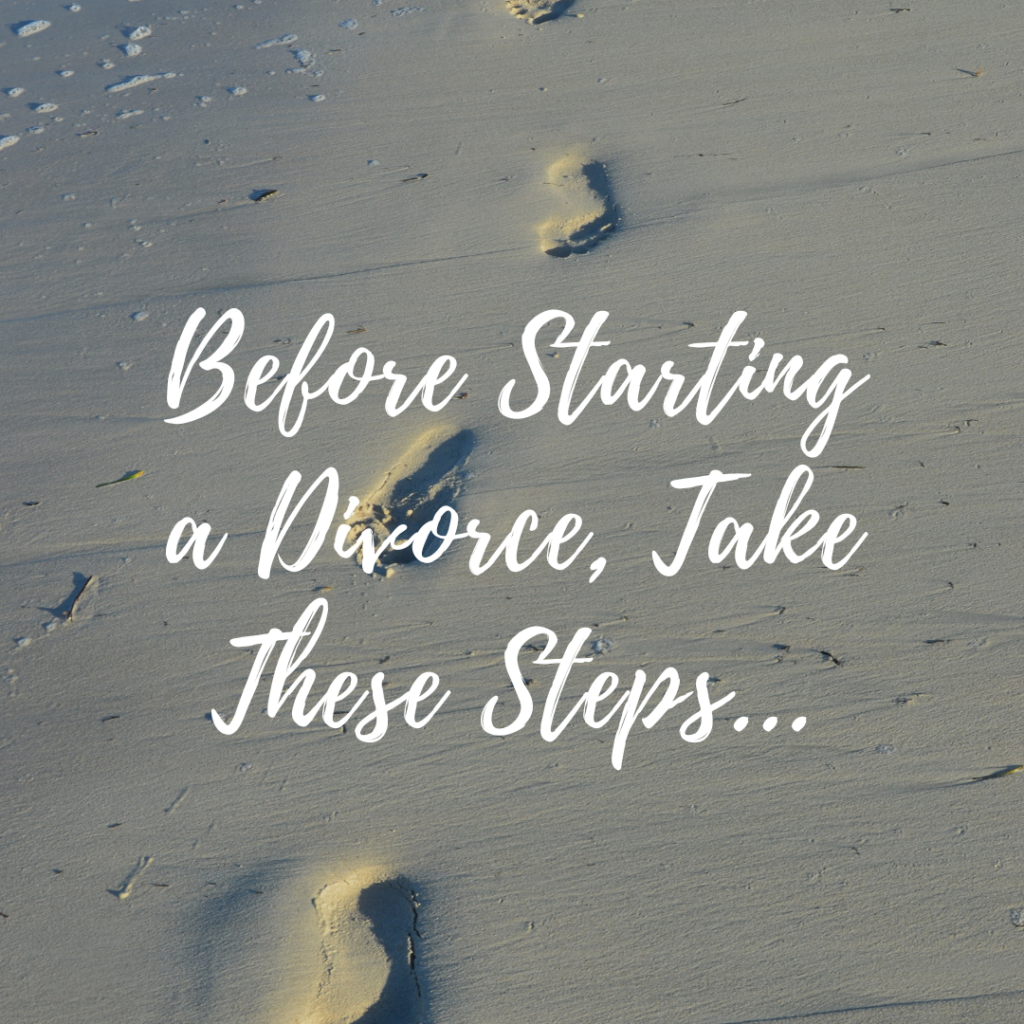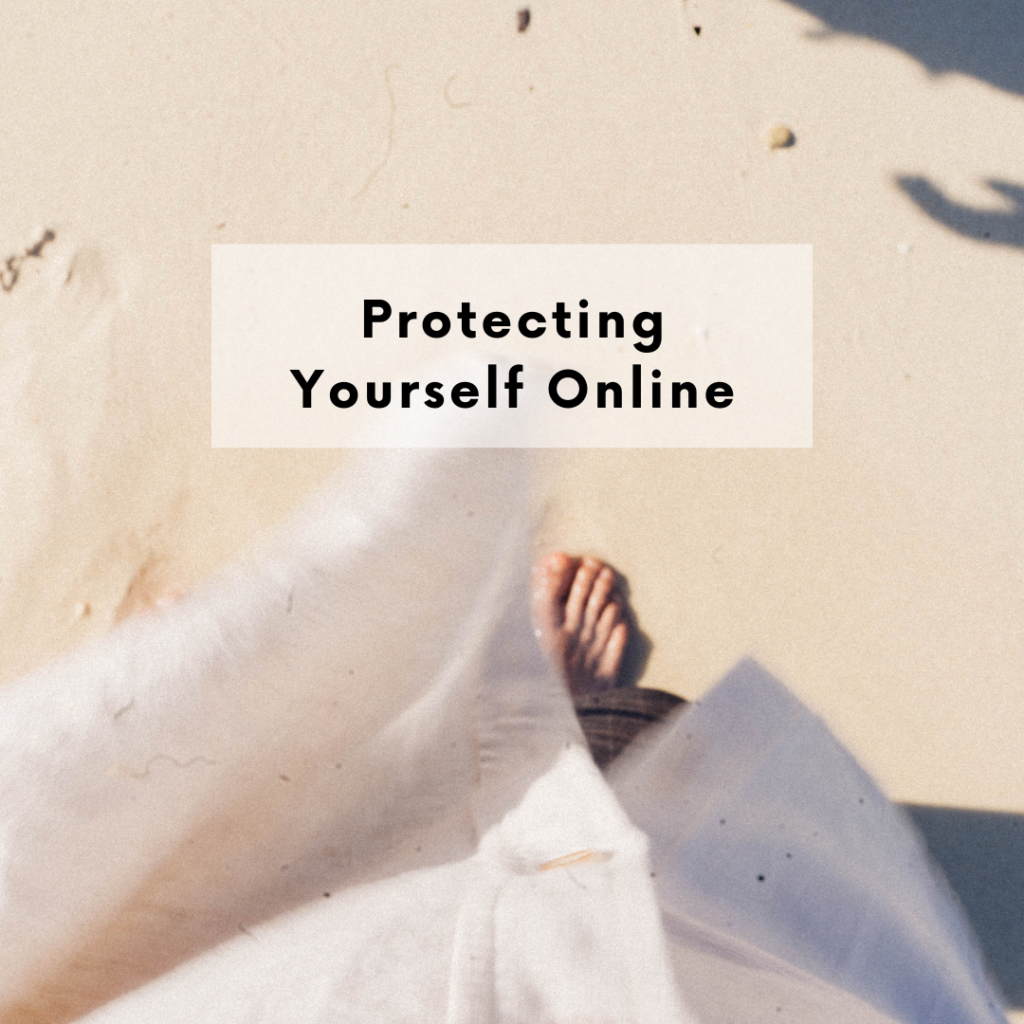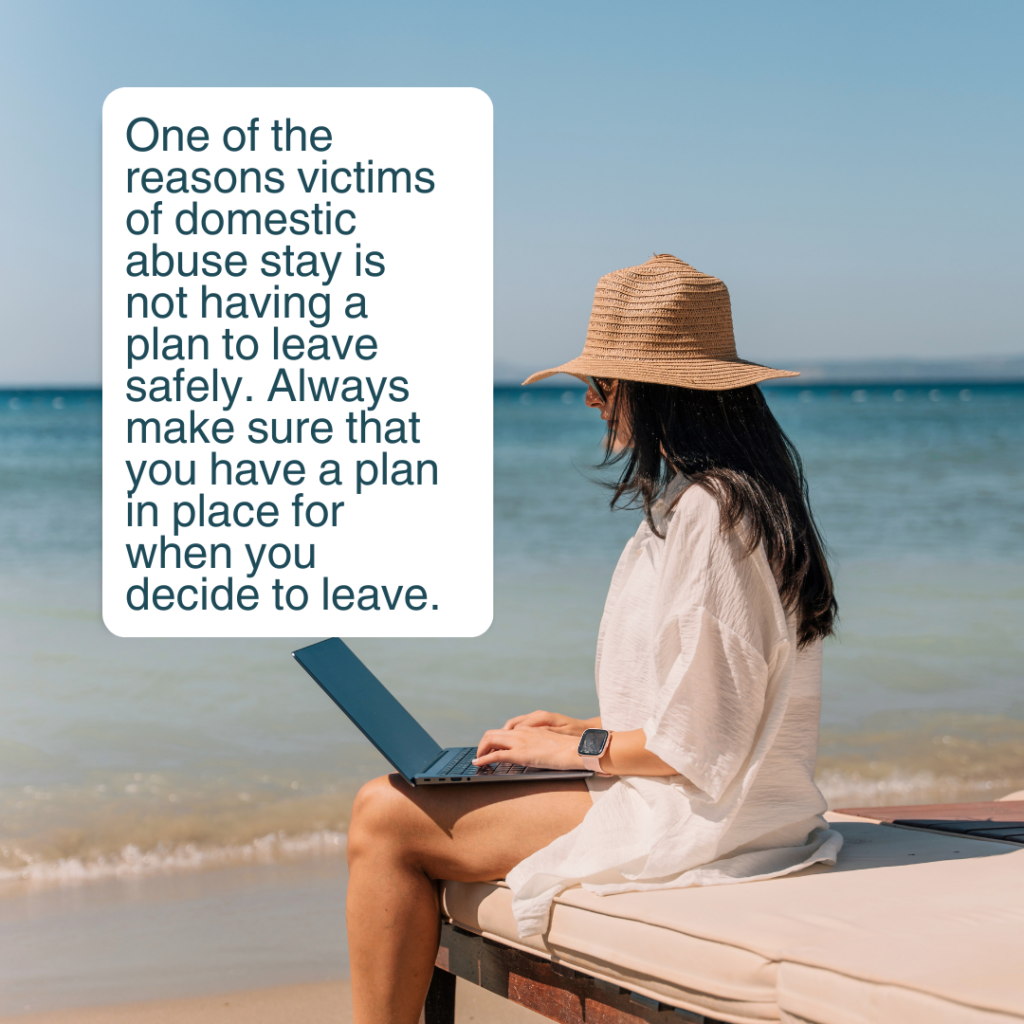When I think back to the time I spent preparing before leaving my marriage, I realize that I had no idea what I needed, what I was doing, or even what leaving my ex-husband would look like. While I knew I needed to prepare, I had no idea what was important. I thought the most critical thing I needed to worry about was having a little money stashed away. Little did I know that leaving my ex-husband, or any abusive relationship, required careful planning and several crucial steps.
As I came to terms with the fact that I had been in an abusive relationship for nearly two decades, I began to plan my exit, or as many like to call it, my escape. I started checking my credit, taking care of my student loans (despite my ex-husband’s objections), opening a couple of credit cards, and stashing a little money away.
A quick side note about the student loan issue: we were able to pay off my ex-husband’s student loans years before I left, and he always told me we didn’t have the money to pay mine. He also spent most of our marriage telling me how bad I was with money. I now know this was a way to control and financially abuse me.
We had a huge argument not long after I started preparing to leave. To this day, I believe he somehow knew I was starting this process and was checking up on me without my knowledge. That weekend, I decided I had enough and told him our marriage was over and that I wanted a divorce. Because of this, I couldn’t complete my escape plan, but I began moving in that direction, even though I had no idea what I was doing, what was coming my way, or how to protect myself.
I started carrying what I thought was important with me so he couldn’t take things or check up on me. I had to open a new bank account because he accessed my old one without my knowledge. I discovered the bank had a special department for people like myself going through high-conflict divorces. A good friend also advised me to inventory our house, especially anything of value. I had no idea someone would stoop to such levels, but I was wrong. A couple of days after she told me to do it, I came home to find all kinds of things missing from the house.
As I distanced myself from my ex-husband and my divorce and began working with others who were leaving abusive relationships, I learned and shared more about the crucial steps needed to prepare to leave. Of course, if your safety is in jeopardy, that is far more important than anything I suggest.
Here are the steps I’ve learned are essential when planning to leave an abusive relationship:

Understanding the Need to Leave
To start, it’s crucial to recognize the signs of abuse. Abuse can be physical, emotional, psychological, financial, or a combination of these. Physical abuse is not only more apparent, but it’s what we are often taught what abuse is, but emotional and psychological abuse can be just as damaging. This can include manipulation, constant criticism, gaslighting, and isolation from friends and family. Financial abuse might involve controlling your finances, restricting access to money, or sabotaging your job. Understanding these signs helps you realize the severity of the situation and motivates you to take action.
Leaving an abusive relationship is not just a physical act but also an emotional and psychological journey. It’s essential to acknowledge your feelings, understand that feeling scared, guilty, or uncertain is normal, and build your confidence by reminding yourself of your worth and capabilities. Seeking professional help, such as therapy counseling or a divorce coach, can provide emotional support and strategies to cope with the trauma. They can also help you work through the steps of leaving and creating a safety plan.

Initial Planning and Safety Measures
Planning your escape requires utmost confidentiality to ensure your safety. Keep your plans secret, and don’t discuss them with anyone who might disclose them to your abuser. Use a safe device to access information and communicate, and create a safety plan outlining steps to take during and after leaving, including emergency contacts and safe locations. When I was planning to leave, I looked at the phone and purchased a pre-paid one. And honestly, I have stuck with that phone and number ever since.
Identifying safe places and emergency contacts is crucial. Know where to go and who to contact. Identify friends, family, or shelters where you can stay temporarily, and list trusted individuals and organizations you can call for immediate help, such as local domestic violence hotlines and shelters.
Financial Preparations
Having financial independence is vital. Open a new bank account at a different bank from your current one to avoid detection and make sure your income is directed to this new account. Stashing emergency funds can make a significant difference. Start saving small amounts of money and keep it in a safe place. As I planned to leave, I would take a few dollars in cash back when grocery shopping. Sometimes, I would put it in my bank account; other times, I would keep it in a secret place so I had a stash of cash in case of an emergency. Look for organizations that provide financial support to those leaving abusive relationships.
A good credit score can help you rebuild your life, but it isn’t necessary to have perfect credit. I didn’t have perfect credit because my ex controlled all our finances. I wasn’t on home loans, car loans, or credit cards. Check your credit report to make sure there are no fraudulent activities, and improve your score by paying off any debts. Consider opening a secured credit card.
Having a secure means of communication is essential. Purchase a new phone your ex doesn’t know about and keep it hidden. Consider using a prepaid plan to avoid being tracked through billing records and only share the new number with trusted individuals.

Securing Important Documents
Collecting all necessary personal identification documents is important for establishing your identity and accessing services. These documents include birth certificates (for you and your children), social security cards, passports, driver’s licenses or state IDs, and marriage certificates.
Make sure you gather all financial records to protect your financial interests and assist with legal proceedings. You will need these important documents, including recent tax returns, pay stubs, employment records (for you and your ex), bank and credit card statements (ALL that can be found, even if you aren’t on the account), loan agreements (home, auto, student – even if you aren’t on the loan), property appraisals (even if you aren’t named on the property), insurance policies (all policies – auto, life, etc.), and investment accounts (even if they aren’t yours or you’re not named on the account).
Legal documents are important for your protection and the divorce process. Make sure to gather marriage certificates and prenuptial agreements (if applicable).

Legal Considerations
Consulting with a lawyer specializing in family law and domestic abuse cases is crucial. Find a lawyer with experience in domestic abuse and high-conflict divorces. Gather all necessary documents and evidence of abuse to present to your lawyer. Use my downloadable list of questions to ensure you cover all important aspects during your consultation.
Legal protection is very important for your safety. Learn about obtaining a restraining order and how it can protect you. Understand the different types of protection orders and their implications for your safety.
If you have children, ensuring their safety and well-being is a priority. Understand the different types of custody arrangements and what is best for your children. Prepare for temporary custody orders to protect your children during the transition period.
Hiring a high-conflict divorce coach can be incredibly beneficial during this time. A coach with expertise in high-conflict divorces, like myself, can provide guidance, support, and practical strategies to navigate the complexities of your situation. They can help you understand the legal process, manage interactions with your ex, and stay focused on your goals for a safe and successful transition.
Housing and Relocation
Finding safe and immediate housing is critical. Reach out to trusted friends and family who can provide temporary shelter and utilize local shelters that offer a safe haven and resources for victims of abuse.
Having a plan for temporary housing can ease the transition. Consider short-term rental options like hotels or Airbnb, and look for programs that offer temporary housing and support services for individuals leaving abusive relationships.
If you can plan for long-term housing, it allows stability and security. Research rental properties that fit your budget and needs, and if financially feasible, consider purchasing a new home for long-term stability.
Employment and Education
Having a job can help when leaving an abusive relationship, but it isn’t always necessary. I didn’t have a job and hadn’t worked in years when I first left my ex-husband. The most important thing is to get out and be safe. If you can, refresh your resume with your latest skills and experiences, use job search websites, local job fairs, and networking to find employment opportunities. If you feel safe, inform your employer about your situation for support and understanding.
Further education or training can enhance your job prospects and earning potential. Look for local colleges or online courses that offer flexible schedules, consider vocational programs that provide hands-on skills for specific careers, and explore scholarships, grants, and financial aid options to fund your education.
I opted to return to school after I left my marriage. It had been years since I had worked and longer since I had been in school. The things I enjoyed and wanted to do had changed, and I wanted to provide the best life I could for myself and my kids.
Health and Well-being
Taking care of your health is crucial during this transition. It’s important to continue with your current healthcare providers. Let your doctors and other healthcare providers know about your situation so they can help protect you and your children and offer the necessary support. Ensure you have access to your medical records for continuity of care and schedule regular check-ups to monitor your health and well-being. Another important step is to make sure your ex doesn’t have access to those records.
Mental health support is essential for healing and recovery. If you aren’t already seeing a therapist, now is the time to find one experienced in dealing with trauma and abuse. Join support groups for survivors of abuse to share experiences and receive emotional support. Utilize online therapy options if in-person sessions are not feasible.
Building a strong support system can provide emotional and practical help. Reconnect with supportive friends and family members who can offer assistance. Use community resources like local churches, community centers, and non-profit organizations. Keep the contact information of domestic violence hotlines handy for immediate support.
Childcare and Education
Your children’s school and daycare should know the situation for their safety and support. Communicate with teachers and school administrators about your situation, provide the school with copies of any custody or protection orders, and make sure the school and daycare have protocols in place for your children’s safety. Create emergency plans that include safe pick-up and drop-off points for your children.
Supporting your children’s emotional health is key during this transition. Consider therapy or counseling for your children to help them cope with the changes, maintain open and honest communication about the situation, and provide as much stability and routine as possible to help them feel secure.

Digital Safety
Protecting your digital privacy is essential. Change passwords for all online accounts, including email, social media, and banking. Create strong, unique passwords that include letters, numbers, and special characters, and enable two-factor authentication for added security. Make sure your ex doesn’t have access to any of your accounts.
Use a phone, tablet, or computer your abuser cannot access or monitor; use incognito mode or private browsing to prevent tracking; and communicate through encrypted messaging apps like Signal or WhatsApp.
Minimize your digital footprint to protect your privacy. Check and update privacy settings on social media accounts and remove or block your ex and anyone associated with them. Avoid sharing personal information online that could share your location or plans, and regularly monitor your accounts for any unusual.
Emotional Support
Join local support groups for survivors of domestic violence, participate in online forums and communities for additional support and resources, and reach out to community organizations that offer support services for abuse survivors. Connecting with others who understand your situation can be very helpful.
Having a good support network is important for emotional well-being. Reconnect with friends and family members who can offer emotional and practical support, schedule regular check-ins with your support network to stay connected and receive encouragement, and engage in activities that promote positive interactions and strengthen your relationships.
Utilize available resources to aid your transition. Contact non-profit organizations that assist abuse survivors, access local services like food banks, clothing donations, and financial assistance programs, and seek out legal aid services that offer free or low-cost legal assistance.
Inventory and Asset Management
Take pictures of valuable items and their serial numbers, make a detailed list of all valuable assets, including jewelry, electronics, and important documents, and keep the inventory and photos in a safe place, such as a safe deposit box or with a friend or family member.
Pack a bag with essential items, including clothes, medications, and important documents. Store important items with a trusted friend or in a safe place your abuser cannot access, and make copies of important documents and store them securely.

Escape Plan Execution
For your safety, plan to leave when your abuser is not around, such as during work hours or when they are away; take care of as many of the items discussed in this post as possible before leaving, and be prepared to leave quickly if the situation becomes dangerous.
Pack and leave discreetly to avoid detection. Take all the essentials possible, such as clothes, medications, important documents, and cash, store your packed bag in a hidden, easily accessible place, and leave discreetly without drawing attention to avoid confrontation or escalation.
Only let those you trust know about your added support and safety plan. Share your plan with a few trusted family or friends who can offer support and assistance, provide your emergency contacts with your new address and any important information, and keep them updated about your safety and any changes to your plan.
Conclusion
Leaving an abusive relationship is a complex and challenging process that requires careful planning and preparation. It took me years to get the courage to leave, which was one of the hardest things I have ever done. It can be frightening to navigate this journey, but with the right resources and support, you can take control of your life and move towards a safer and healthier future.
When I look back on my own experience, I remember the overwhelming mix of fear, uncertainty, and hope. There were many moments when I doubted myself and my ability to follow through with my plan. But with each step, I grew stronger and more determined to create a better life for myself and my children.
One of the most important lessons I learned was the value of seeking help and building a support network. Friends, family, and professionals provided practical assistance and emotional strength. They reminded me that I was not alone and that They were there to support me.
While I couldn’t put my entire plan in place, I have also realized the importance of being prepared. From securing important documents and financial resources to creating a detailed safety plan, each preparation step provides a sense of control and readiness. It is not just about leaving but about taking care of your long-term safety and well-being.
Your safety is the top priority. If you ever feel in immediate danger, do not wait to call 911 or your local emergency services. Many organizations and hotlines are also available to help, whether it’s legal advice, emotional support, or shelter.
Take one step at a time, and don’t be afraid to reach out for help. You are stronger than you realize, and with determination and support, you can overcome this challenging period and build a new life free from abuse.
Additional Resources
- My Website: My Hidden Scars – A valuable resource for individuals planning to leave abusive relationships.
- National Domestic Violence Hotline: TheHotline.org – Provides 24/7 support for victims of domestic violence.
- YouTube Video: How to Leave an Abusive Relationship – Offers practical advice and real-life experiences from survivors.



